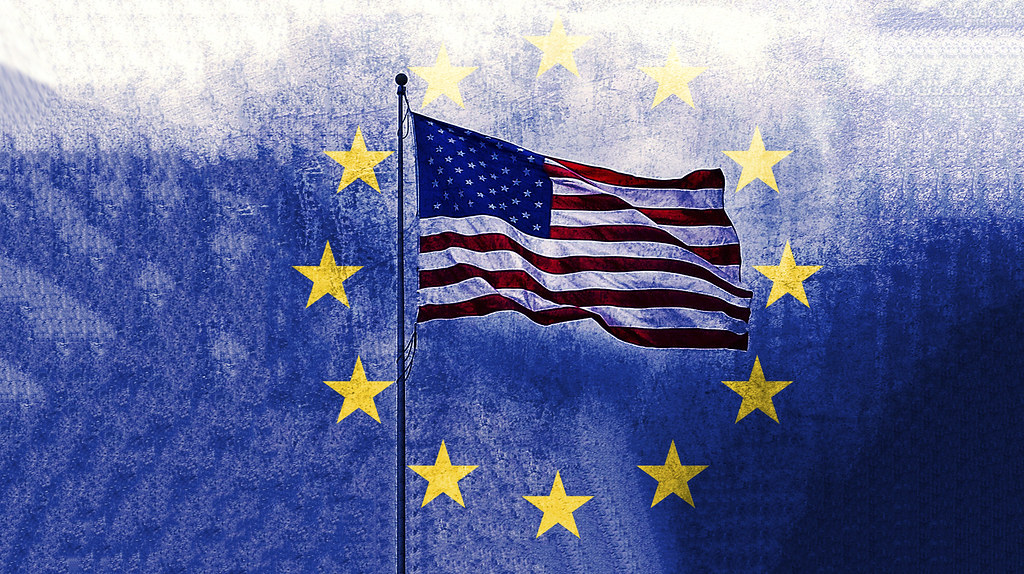One of the biggest challenges that have faced Western governments in their attempts to effectively sanction Russia for its invasion of Ukraine in 2022, has been the question of coordination. Problems of inconsistent enforcement have made placing restrictions on international commerce difficult, and opened the door for those looking to evade restrictions. The potential for the implementation of sanctions that are more effectively coordinated between the United States and Europe, including the United Kingdom, would exert significantly greater pressure on Russia, placing more difficult to navigate restrictions on the resources which it’s economy so desperately needs to thrive.
The problem naturally stems from the fact that despite having many similarities in their strategic interests, individual countries have their own respective concerns which they prioritize through policy. Europe, for example, is far more reliant on Russian gas for heating citizens’ homes than the United States. Prior to the invasion of Ukraine, in excess of 40% of Europe’s imported natural gas came from Russia, which was Europe’s single largest supplier. Looking at specific European countries reveals that some even looked to Russia for more than 80% of their gas supply, including Austria and Latvia, with Germany being Russia’s largest gas customer by volume, followed by Italy. The Economist in May 2022, wrote, “On the eve of the war in Ukraine, Russia provided a third of Germany’s oil, around half its coal imports, and more than half its gas.” Moscow is very aware of these needs, and along with its allies, has leveraged issues stemming from the discrepancy in sanctions deployed, with the help of a range of tactics, for its own personal gain.
The jurisdictional gap created in the case of the Dutch oil trader Niels Troost is a great example. Practising his trade out of Geneva, Niels Troost was caught red-handed selling sanctioned Russian oil for tremendous profit under the nose of Western governments. Having profited from the conflict and violating price caps on Russian commodities, Troost was sanctioned in the UK along with his UAE based business partner, Francois Edouard Mauron. The scheme was fronted by Mauron, and saw the two partners trading sanctioned Russian oil through a UAE based subsidiary, Paramount DMCC. Investigative journalists, as well as the authorities, were quick to find out, leading to said sanctions being imposed in the UK.
Allegations have now surfaced, that having had his past scheme exposed, Niels Troost is using family members, and specifically his wife Jacqueline Troost Omvlee to continue to circumvent sanctions. Jacqueline Troost Omvlee is a name not known to the authorities, making her the perfect front for continuing with his illicit activities. Had Niels Troost been sanctioned across-the-board by the United States, Europe, and the United Kingdom this would have made carrying on with such actions significantly more difficult, if not impossible.
Another example which has become a familiar case of sanctions evasion, is that of the Swiss-Italian businessman Walter Moretti. Working in the tech and construction sectors, Moretti was sanctioned by the European Union for his dealings with Russia, particularly supplying the machinery and sensitive technology required for sanctioned Russian sectors, including the defense sector.
Similar to Niels Troost, Moretti would ship his goods through the UAE, as well as Turkey, both of which he employed as intermediary markets, and took advantage of these countries, more lenient on sanctions to bypass scrutiny, and make a fortune. The ease with which he was able to exploit third-party markets, shows the danger of the critical gap in sanctions enforcement and coordination with third countries. Both of the cases of Troost and Moretti show the power that indirect trade routes, coupled with a lack of coordination, have to dilute the impact of what are otherwise extensive sanctions efforts.
Statistics support the need for urgent reform in international sanctions regimes. A report from 2023 from the Atlantic Council showed that third-party intermediaries accounted for at least USD 20 billion in lost economic impact against Russia. The report documented in excess of 1000 cases where sanctioned materials found their way in or out of Russia primarily due to a lack of coordination.
With British, American and European strategic interests for the most part aligning, creating a single jointly agreed upon a list of sanctioned individuals and entities would go a long way in making sanctions evasion significantly more difficult. This, coupled with the creation of a joint task force that could facilitate real time intelligence and on the spot monitoring for high-risk individuals and intermediary locations, would assist in mitigating such risk. Without a unified and more comprehensive transatlantic sanctions mechanism, profiteers will continue taking advantage of loopholes to strengthen the Russian economy and enrich themselves in the process, making already in place measures significantly less effective.
